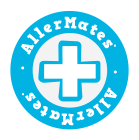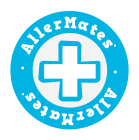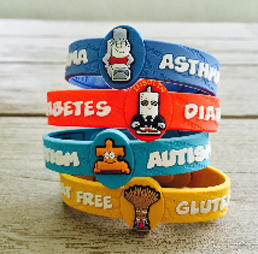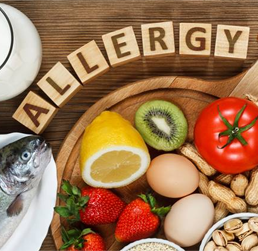
When Epinephrine Doesn’t Work
In the past there have been too many tragic stories of kids with food allergies or even young adults with severe allergies who have left the world way too early due to an allergic reaction gone wrong. While there’s no doubt every loss is beyond saddening, perhaps the most disturbing stories for parents of kids with food allergies are the passing of Michigan college student Chandler Swink and British teenager Jack Burden, both of whom received epinephrine following an allergic outbreak. Many have probably wondered how these two young adults passed away despite receiving epinephrine.
Without reviewing their respective cases, I won’t speculate on the causes of their passing. Their deaths have brought allergies to the forefront of many people’s minds, helping those who never considered the consequences understand their seriousness. With this light now shining on allergies, it’s important we use this momentum to keep educating people on how to avoid heartbreaking losses like these.
It is important to know that having epinephrine handy is NOT always enough to save a life. This miracle worker has to be administered correctly and under the proper circumstances to truly work its magic. Keep these five likely epinephrine-related situations in mind for yourself as well as when you are educating your age appropriate kid with severe allergies:
1. Don’t allow too much time to pass.
If you know an allergen has been ingested and your child is at risk for a severe allergic reaction, give epinephrine immediately. The medical community today does not advocate that we “wait and see” what happens anymore. As a mom of a food allergic child who has had to reach for the auto injector a couple of times – I will tell you firsthand that giving the actual injection is truly not as bad as you’ve imagined it to be. As a matter of fact, I recall my son telling me “it didn’t even hurt, Mom”. We both got over our fear of Epi.
2. Make sure enough epinephrine is given.
Biphasic anaphylaxis occurs when symptoms of an allergic reaction return even after the first dose of epinephrine is administered. In these cases, which occur in about 20% of allergic reactions, a second injection is required. Because of how common biphasic anaphylaxis is, it’s always recommended to carry two auto-injectors in your medicine bag at all times! Make sure you are well prepared.
3. Seek medical assistance immediately after use of epinephrine.
Epinephrine has incredible effects in easing symptoms of an allergic reaction, however it should not be left to work alone! These effects can wear off as soon as 10-20 minutes after the injection, so be sure to get to the hospital or urgent care center quickly to seek emergency care right after administering epinephrine.
4. Practice makes perfect.
Giving epinephrine takes time (10 seconds with an EpiPen® to be exact!). Administers should be aware of this time requirement as well as the correct place to give the injection (the outer thigh). There is a reason why auto injectors give you a trainer. Be sure to practice so you’re always prepared for these emergency situations.
5. Make sure the medicine in the auto-injector has not expired.
Yes, like all other medications in your medicine cabinet, epinephrine does expire. With every day that goes by past the specified expiration date, epinephrine will lose its potency more and more, meaning it will be less effective. When you purchase epinephrine, mark your calendars with the expiration date before packing it away in your medicine bag so you’re aware of when it’s time to replace it.
In short, yes, epinephrine does work to treat anaphylaxis and can help save your child’s life, but not without you and your age appropriate child’s knowledge of its correct usage and handling.

Make sure kids with food allergies are protected by keeping epinephrine and other allergy medicine for kids close by at all times. AllerMates has made it easy with our medicine cases and bags, designed to tote Epi-Pens® and other allergy medicine for kids. Medicine cases can be found in retail locations like CVS health and HEB Supermarkets as well as on-line stores like AllerMates.com, CVS.com and much more.
Another important part of keeping kids with food allergies safe is notifying caretakers of their health condition. Secure an AllerMates allergy bracelet, along with our “I Carry An Epi-Pen” medical alert charm to immediately let caretakers know of your child’s allergies. Finally, always educate your kids so they’re aware of their allergies and can help protect themselves when not under your care! Make sure they understand what can trigger a reaction and to alert an adult immediately if they are experiencing a reaction.
Here’s to keeping our kids safe
xo,
Iris Shamus






